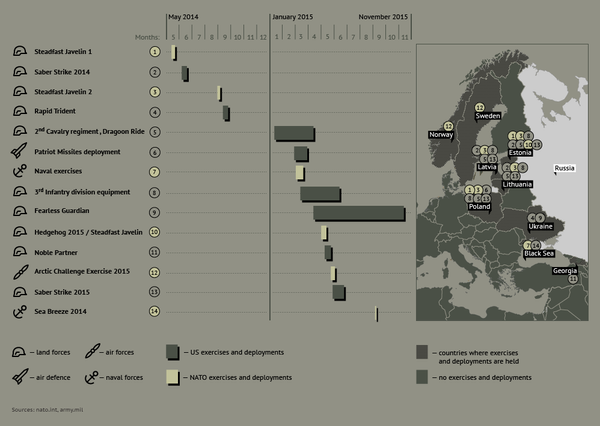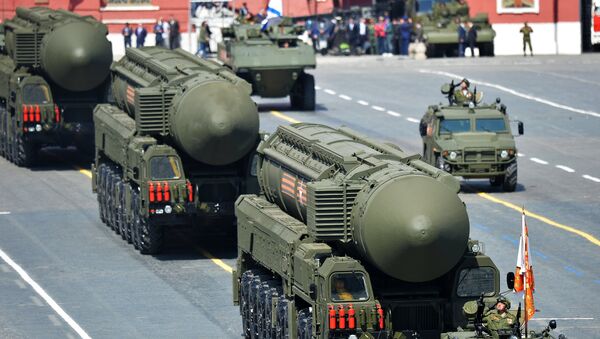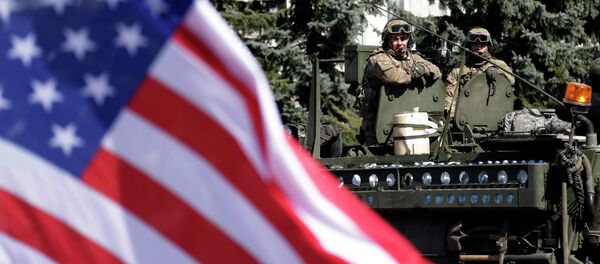The initiatives, reminiscent of the darkest days of the Cold War, are part of a broader US strategy of strengthening its military presence in Europe. One needs to look no further than at the sheer amount of NATO war-games close to Russia's borders in the last 12 months.
"Moscow has figured out that the US and its NATO allies have an evil eye on Russia," M.K. Bhadrakumar said.
"In conventional forces, the US and its allies enjoy superiority over Russia. That leaves Russia with no option but to display its nuclear deterrent," the analyst claimed, referring to Moscow's plans to add 40 intercontinental ballistic missiles to its strategic forces in 2015.
The US tried to force "the hands of its major western allies to switch to a confrontational mode vis-à-vis Russia" to turn Moscow and European capitals into "adversaries for the foreseeable future," the analyst explained. The civil war in Ukraine likely serves this purpose.
Washington's efforts have not paid off as Russia remains "fiercely independent" on the world stage, which "not only frustrates the US' regional strategies but also sets a bad example for other independent-minded countries to emulate," M.K. Bhadrakumar pointed out.
As long as this state of affairs persists, Washington cannot achieve its strategic goals. For instance, "the US' strategy to confront China in the future also cannot make headway" as long as Russia remains strong and independent, according to the analyst.
But "above all, the global strategic balance (Russia's nuclear parity) impedes the US' attempts to create a New American Century," M.K. Bhadrakumar said.






